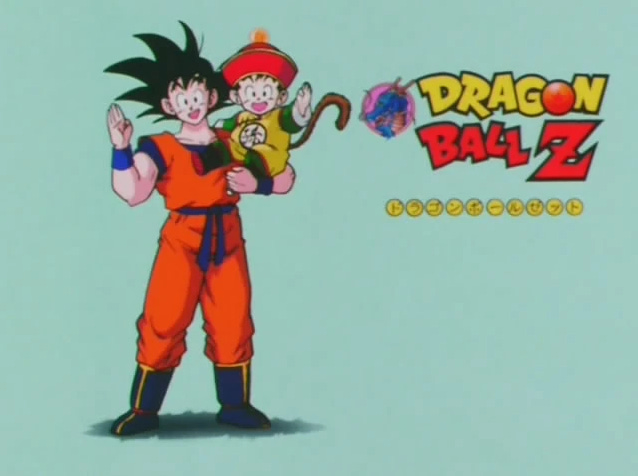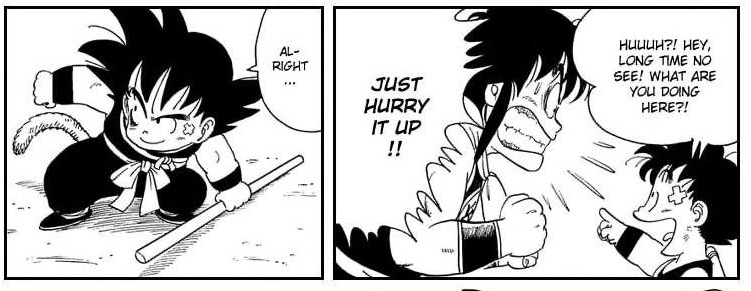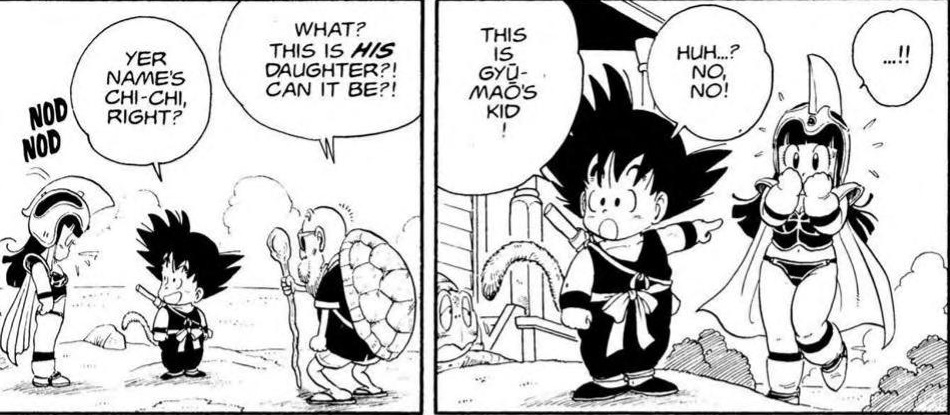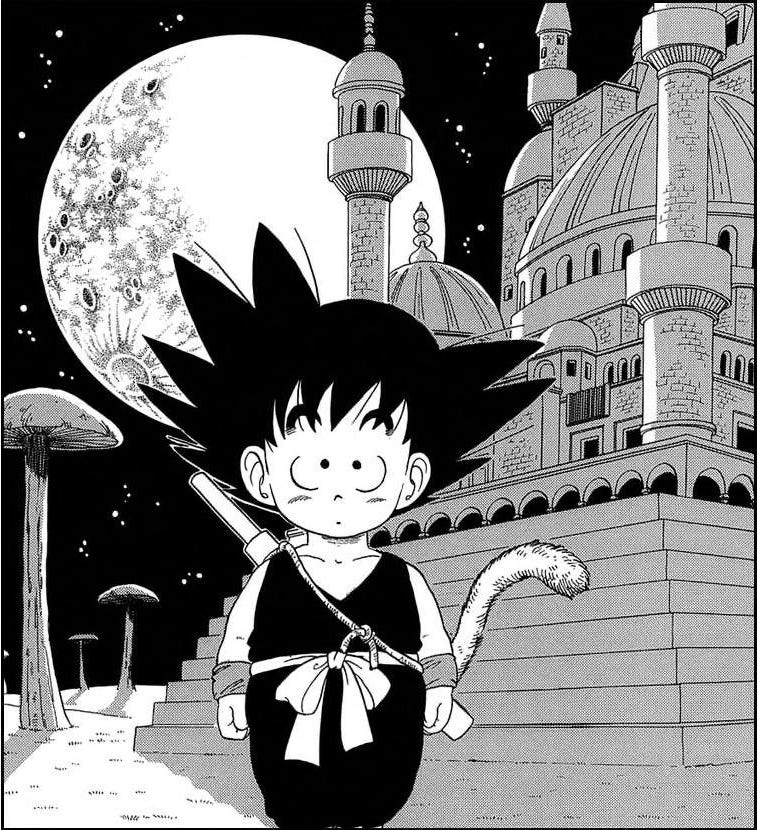The paradoxes of the first weeks of parenthood: you have never been more tired but you must stay awake. You have hours to fill, but you must remain perfectly still because the baby is sleeping strapped to your chest. You want to watch a tv show but basically everything is too hard to focus on because you’re completely braindead, and because you’re experiencing an upwelling of emotion like nothing you’ve ever experienced, the transformation of becoming a father.
Liz’s solution was to get really into Canadian home renovation shows, which I would often find her watching at 6:00 am with Patrick dozing on her. My purview was the evenings, when I would stay up through his first two-hour snooze of the night to change him, feed him, and get him back to bed on my own (an ideal plan that rarely came to fruition). For my sound-off, subtitles-on evening distraction, I chose original Dragon Ball.
Akira Toriyama, the manga artist and creator of Dragon Ball, died earlier this month at 68, an astoundingly young age given the scale of his accomplishments. His influence on manga, anime, and the global dissemination of Japanese culture cannot be overstated, but I'm not the person to eulogize him. My knowledge of his work is cursory at best. I’m part of the microgeneration who was the exact right age for Dragon Ball Z but I was—am!—the sensitive kind of nerd did not find a show about big muscle men punching each other interesting or relatable at all. I can recall so clearly my best friend eagerly putting in his VHS tape to show me Goku’s sick fight with Frieza only for me sit there politely bored to death by the fifteen minutes of them staring each other down sandwiched between an extensive recap and preview of the next episode.
I always felt like I missed out. Dragon Ball is so beloved by so many across demographic lines. Toriyama’s death was memorialized by a gathering in Mexico City where mourners performed the motions of one of the energy attacks from the show. Piccolo, the green alien from planet Namek, is a touchstone figure for Black nerds. The show has just never gone away, a permanent addition to the cultural ether. You know these characters have entered the pop culture pantheon when Stephen A is talking about them unselfconsciously on ESPN, even if he did absolutely butcher the pronunciation of Vegeta.
But Dragon Ball doesn’t start with Goku as a grown man who lives to power up and scream in aliens’ faces. It starts with him as a little boy with a monkey tail who spends his days swinging through trees and bonking dinosaurs over the head with a big stick. It is immensely silly. It was the perfect thing for that moment in my life. As I explained to my wife, “It’s so stupid but it’s so well made.”
Goku is 12 years old when the story begins but he is, in every meaningful way, a toddler. He knows nothing of the world and remains naive and trusting even as he becomes a hardened fighter. He forms deep attachments to his friends and favorite objects, erupting in volcanic anger when they’re threatened. The violence he does in those early episodes is weirdly pure-hearted, with him reacting against threats with the disproportionate force of a child who doesn’t know their own capacity to do harm or understand that other people can feel pain too.
In his book of aphorisms Culture and Value, Ludwig Wittgenstein remarked, “Anyone who listens to a child’s crying and understands what he hears will know that it harbors dormant psychic forces, terrible forces different from anything commonly assumed. Profound rage, pain, and lust for destruction.” I think it’s just so funny that Toriyama made one of the most enduring works of anime by taking this idea seriously and giving his infant protagonist the ability to unleash his inner Wittgensteinian tempest. In fact, the idea justifies the energy blasts the come to dominate what are ostensibly martial arts battles. The early chapters of Dragon Ball are zany, physics-defying silliness but they’re rooted in Goku jumping, climbing, and kicking. Things escalate to a new level of unreality when Master Roshi demonstrates the Kamehameha, his signature attack that channels his spiritual energy into a beam he shoots from his hands. It took him decades to master but Goku replicates it instantly. Roshi had to laboriously carve the path back to the dormant psychic forces of early childhood but for Goku they’re right there on the surface, ready to spring forth.
Put one way, Dragon Ball is one long training montage, as Goku endlessly gets stronger, unlocks new hidden reserves of power, and masters new abilities. It risks getting rote. My son is 18-months now; I have spent that time watching him do the exact same thing. It happens in fits and starts. For two months it seems nothing is happening. Then one day, he rolls. Then he crawls. He starts trying to stand but can’t yet. He falls. Maybe he cries. He tries to stand again. He takes a few tentative steps and a week later he’s an unstoppable walker. Climbing, running, feeding himself. There is such strength in such a small person, a determination and an unrelenting tenacity we rarely see in adults, with the exception, perhaps, of professional athletes.
Along with those gross motor skills, Patrick began showing his personality more and more as he became aware of the world around him and became able to express himself. He has interests, preferences, mannerisms. He’s a sweet boy who loves to laugh. Toriyama’s first child was born in 1987, three years after he began writing and drawing Dragon Ball, which is surprising given his gift for capturing the expressions, posture, and gestures of small children. When Patrick was very young he had a habit of pursing his lips out, an expression Toriyama frequently gives Goku, as in the right frame of this panel.
He loves to point at birds or our cat with the simple excitement of Goku pointing at Chi-Chi.
When he’s feeling silly he does an exaggerated stompy walk that Goku and Krillin frequently do in the anime when they’re goofing off. He’ll run off to do something only for the thought to fly out of his head, leaving him standing blankly, every muscle loose.
In the very early chapters Goku likes to take off his clothes and run around naked, which I can attest is another part of parenthood. He is also an insatiable eater, which I’ve found terribly relatable lately. My son could at least learn something from Goku’s lack of pickiness.
When the time came to age Goku up to adulthood, Toriyama had become a father. He accordingly made Goku one as well, introducing Gohan as a shy 4-year-old.
I put on the first episode of DBZ to see how they handled Goku’s new role and how he interacts with Gohan. I was overcome seeing this character as a parent himself. I look at young Goku and I see my son. I look at adult Goku with little Gohan and I see myself and my son. It’s a shame he drew hundreds of issues of people fighting when it’s so wonderful to see his characters hug.
Like I said, I’m not the person to write a proper obit for Toriyama—I don’t know manga history and even as I enjoy Dragon Ball I think it’s aggressively dumb and often boring. But what a joy to return to a piece of art I found totally inaccessible before in a new phase of my life and to find it transformed, just as I am.








